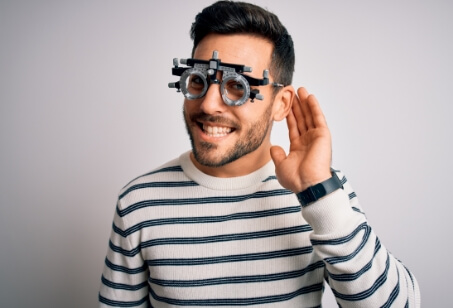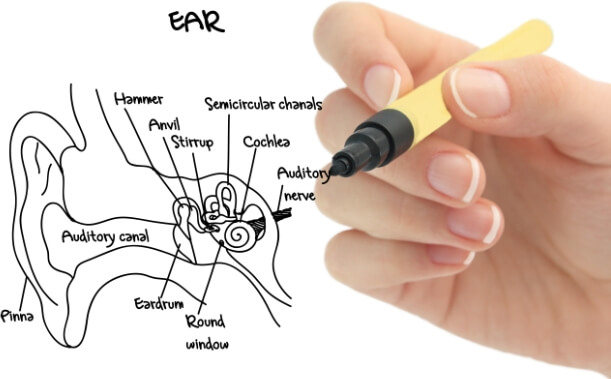EXPERIENCING A PROBLEM WITH YOUR HEARING AID?
Click JUST ASK to contact us and we will respond as soon as possible.
JUST ASK
In the background there are dishes clattering, chairs scraping, people talking and laughing, and waiters rushing about. You are straining to follow what is happening at your table – and the effort of doing this is starting to make you feel more and more tired.
You nod, look interested and laugh with the crowd even though you didn’t get the jokes. You begin to feel left out. When you leave the restaurant, you have a throbbing headache, disappointment and no plans to repeat the experience anytime soon.

As with the eye, the ear’s performance is affected by aging. However, bad vision gradually makes reading harder as the letters get smaller, but hearing loss is different.
Hearing loss can make certain syllables and sounds harder to hear. For example, high-pitched consonants like f, s and t are easily drowned out by louder, low-pitched vowels like a, o and u. This results in a person with hearing loss complaining they hear loudly enough but not clearly enough, like mumbling.
Untreated hearing loss can cause you to withdraw from socializing because conversations take so much more mental energy. Left untreated, studies show, hearing loss can lead to feelings of isolation and depression.

If you can answer YES to one or more of these questions you might have hearing loss:

Conductive hearing loss is caused by problems in the outer and middle ear, which can prevent sounds getting through to the inner ear. The most common cause can be a build-up of wax in the ear canal, a perforated eardrum, fluid in the middle ear, or damaged or defective middle ear bones (ossicles).
This type of hearing loss happens when the delicate nerve fibers in the inner ear get damaged. This stops them transmitting sound properly. It can be caused by excessive exposure to noise, but the most common causes of sensorineural hearing loss are the natural processes of aging. For some the sensory cells wear out already at the age of 50 whereas others have only negligible hearing loss even at the age of 80. This condition is permanent in most cases.




Click JUST ASK to contact us and we will respond as soon as possible.
JUST ASK